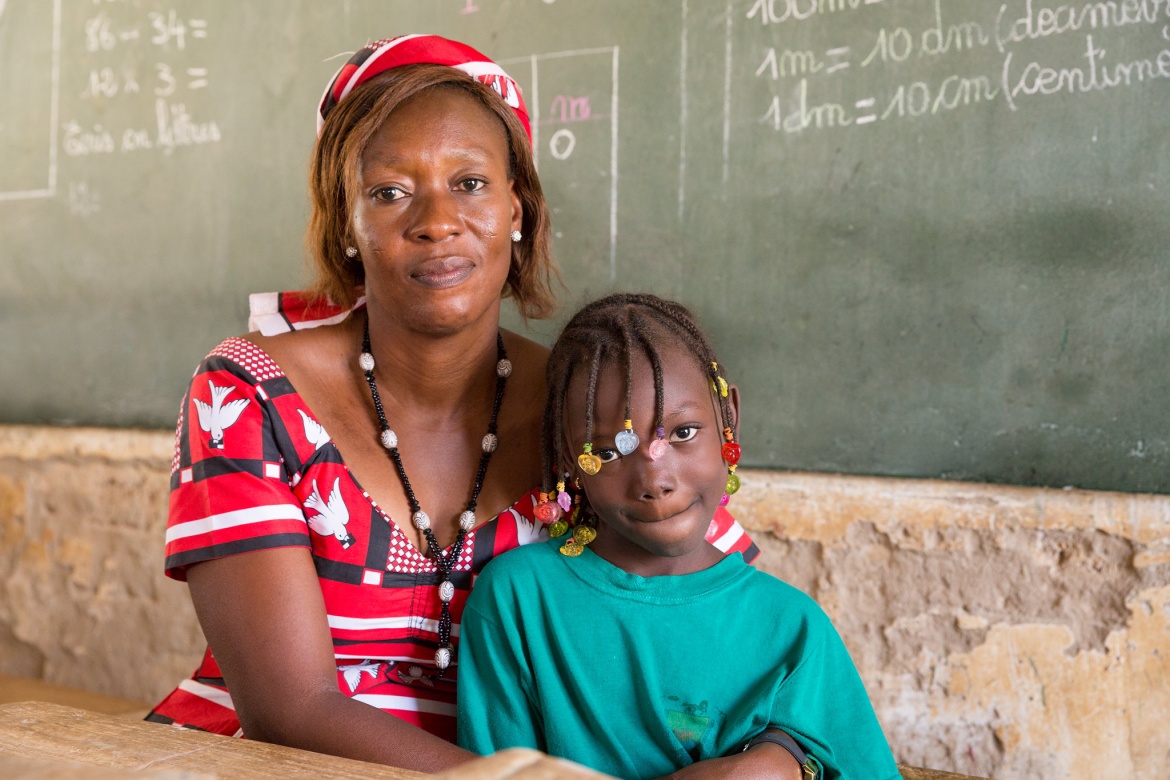Transforming Education: When Protection is the First Step

Education is increasingly becoming the target of violent attacks, depriving millions of people of their right to education and hindering the achievement of SDG 4.
Today marks the observance of the International Day to Protect Education from Attack, unanimously adopted by a UN General Assembly Resolution in 2020 in order to call on governments to guarantee the rights of learners and teachers affected by armed conflicts and violence. Sadly, the need to mark this day seems more and more urgent with each passing year.
Nelson Mandela famously said, “education is the most powerful weapon to change the world”. Despite this, or perhaps precisely for that reason, education is increasingly becoming the target of violent attacks.
According to the Global Coalition to Protect Education from Attack (GCPEA), attacks on education and military use of schools increased by one-third between 2019 and 2021, reaching 5,000 reported attacks on education and cases of military use of schools and universities.
Over 9,000 students and educators were abducted, arbitrarily arrested, injured, or killed in these events. This means that, on average, six attacks on education or cases of military use of schools have been recorded daily over the past two years.
Attacks on schools are the most common form of attacks to education, but there are also reported attacks on students, teachers and other education personnel; cases of military use of educational facilities, child recruitment, sexual violence and targeted attacks on higher education.
Attacks on education are obviously linked – but not solely – to violent conflict, but the motives to target education can be political, military, ideological, sectarian, ethnic, or religious. The consequences are devastating.
In the short term, they cause human and material losses, damages, psychological distress, and the reduction of the teaching force. In the long term, they cause acute and lasting impacts on teaching and learning, profoundly undermining national education systems and economic and social development – and destroying the lives and future of millions of people.
Of course, women and girls are specifically and disproportionately affected by attacks on education.
Burkina Faso – attacks on education on the rise as violence increases
In the last couple of years, Burkina Faso has become one of the fastest growing displacement crises in the world. The country is confronted with a deadly combination of factors: from the Central Sahel crisis to the violent conflict against and between non-state armed groups, particularly in the northern and eastern regions of the country, leading to unprecedented levels of fighting and insecurity.
This situation, compounded by the impact of the COVID-19 pandemic, is having devastating consequences for education.
As armed violence escalated, attacks on education have significantly increased in the country, with parties to conflict intentionally burning, looting, or otherwise damaging schools and universities and high numbers of students and educators threatened, abducted, injured, or killed by targeted and indiscriminate attacks.
Burkina Faso has been rated by GCPEA as being heavily affected by attacks on education.
“Today, we note the closure of more than 4,000 schools, more than 800,000 children out of school and more than 20,000 teachers affected” reported Tahirou Traore, national Coordinator of CN-EPT/B, the Global Campaign for Education national education coalition in Burkina Faso.
Relentless attacks and threats against schools in the central Sahel are causing alarming levels of stress among children in conflict-affected areas, with 53% saying they don’t feel safe at school, according to a recent report by the Norwegian Refugee Council.
Sadly, Burkina Faso is far from being the only country where education, educators and learners are targeted, but just one example to illustrate a wildly widespread issue: from Mali to Myanmar, the Democratic Republic of Congo and Palestine - the countries with the highest incidences of attacks on education - or Afghanistan, where attacks on schools with explosive devices are frequent, and girls and female educators providing education to girls were directly targeted even before the Taliban’s takeover. Now, Afghan girls and adolescents are banned from school.
Transforming Education Summit – Protecting education is the first step
These days, all eyes are set on the Transforming Education Summit, convened by the UN Secretary-General and to be held in New York from September 16 to 19, 2022. Expectations are high. Stakes are too. It is the time when States and decision-makers need to go beyond promises and Protect Education in Emergencies Now!
This includes the endorsement and full, gender-responsive implementation of the Safe Schools Declaration, as well as the development and implementation of robust mechanisms for monitoring and timeously responding to attacks on schools and other education institutions, as well as to put in place and support a range of strategies to prevent violence and make schools safe and accessible.
None of this is possible without adequate funding. Education in emergencies remains chronically underfunded. Donors must increase their support to dedicated multilateral funds, such as the Global Partnership for Education (GPE) and Education Cannot Wait (ECW).
Quality education is a fundamental human right and key to achieving the SDG agenda. Education is also the foundation of social cohesion and peaceful and prosperous societies. Education must remain a safe space.
World leaders must keep this in mind not only today, when we observe the International Day to Protect Education from Attack, but more importantly, when the time comes to decide on concrete actions during the upcoming Transforming Education Summit. Because for transforming education, protecting it is the first step.
Blog by:
Cristina Álvarez, Global Campaign for Education
First published by GPE


